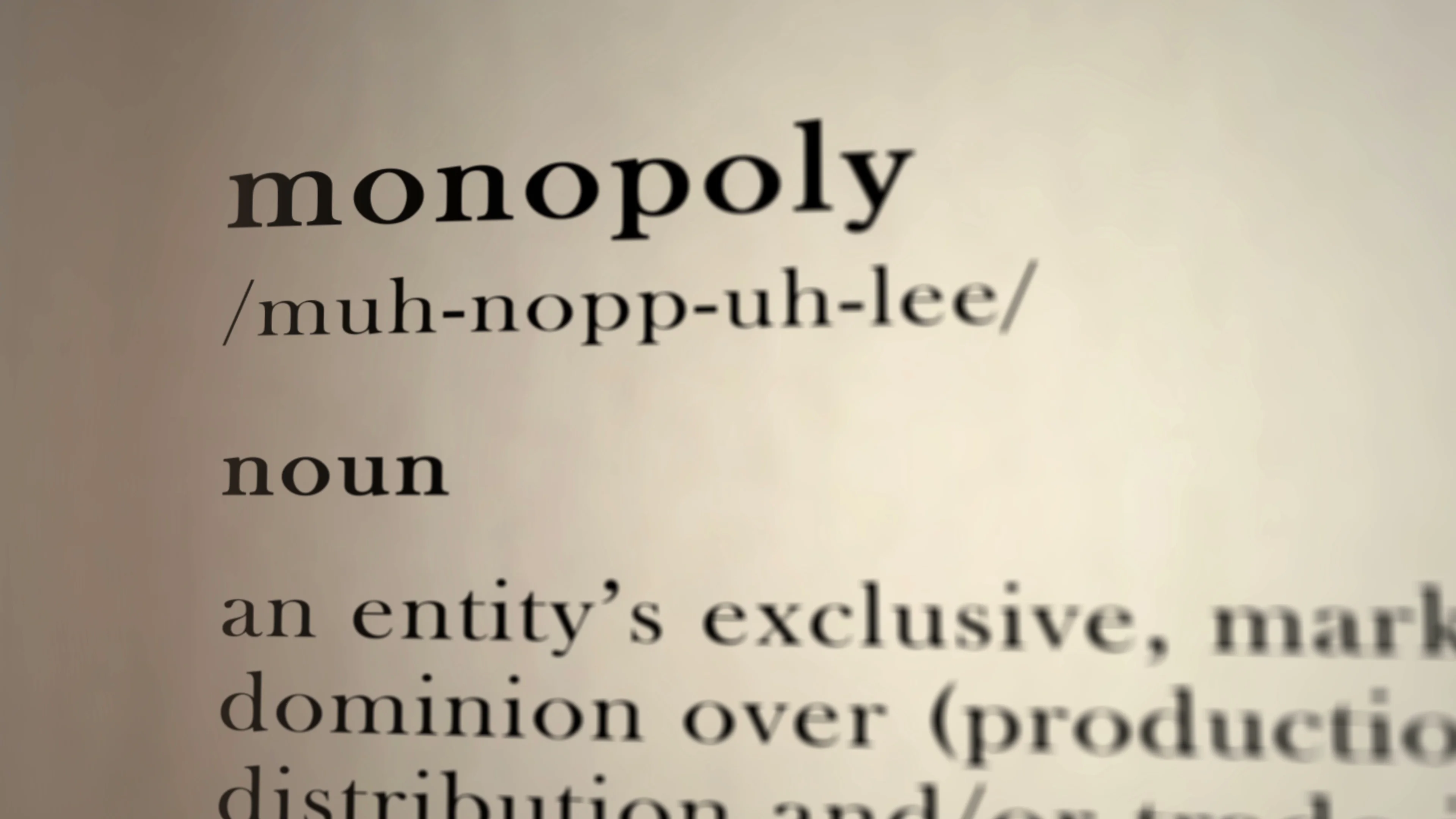
Luxottica, which owns 80 percent of the major eyewear brands worldwide, is a household item, if not a household name. “Ma Bell” was eventually split up into seven “Baby Bells,” however, as new technologies continued to come on the scene that made AT&T’s older systems obsolete, like fiber optics and cell phones.
Monopoly def install#
The government gave the contract to AT&T without a second thought, as the government had already determined that competitors would not be permitted to install new lines that would make AT&T’s lines redundant and unnecessary. The government actually enforced AT&T’s monopoly in 1918 when it nationalized the telecommunications industry. American Telephone and TelegraphĪmerican Telephone and Telegraph, or AT&T, earned its nickname of “Ma Bell” when it bought up all of its competitors in the early 1900s. De Beers once enjoyed a 90 percent market share back in the 1980s, but this number plummeted to less than 50 percent after they were sued for, and pled guilty to, price-fixing of industrial diamonds back in 2004. The company used this practice to enforce the world’s belief that diamonds are scarce, though that’s only true because De Beers has already scooped them all up and shipped them out. De Beers ships a large portion of its rough diamond supply to London, where they are graded, catalogued, and sorted.

Department of Justice sued Standard Oil for its monopoly, citing both discriminatory and unfair practices as two of the sources of its power.ĭe Beers has control over most of the diamond mines in South Africa, Namibia, and Botswana, and it purchases and stockpiles its supply of rough diamonds so that it can charge very high prices as the primary supplier of diamonds in the industry. In 1909, Standard Oil’s reign and domination began to tumble down. The company’s control of oil production rose to 91 percent by the turn of the century, as it engaged in what were later deemed unfair business practices to prevent other companies from entering the oil market. Rockefeller in 1882, and by 1890, Standard Oil controlled 88 percent of all refined oil production, refinement, transportation, and marking in the U.S. The following are examples of monopoly markets that existed in the past, and two examples that are still going strong to this day. These circumstances are known as “barriers to entry.” Monopoly ExamplesĪlthough steps have been taken in many countries to prevent monopolies from forming, they still have a foothold in many situations. A monopoly becomes powerful when circumstances exist that either prevent, or severely obstruct, a potential competitor’s ability to function in the same market.

A monopoly is different from a monopsony, which refers to a market in which there is just one buyer of a product or service, making it impossible for others to obtain it.


 0 kommentar(er)
0 kommentar(er)
